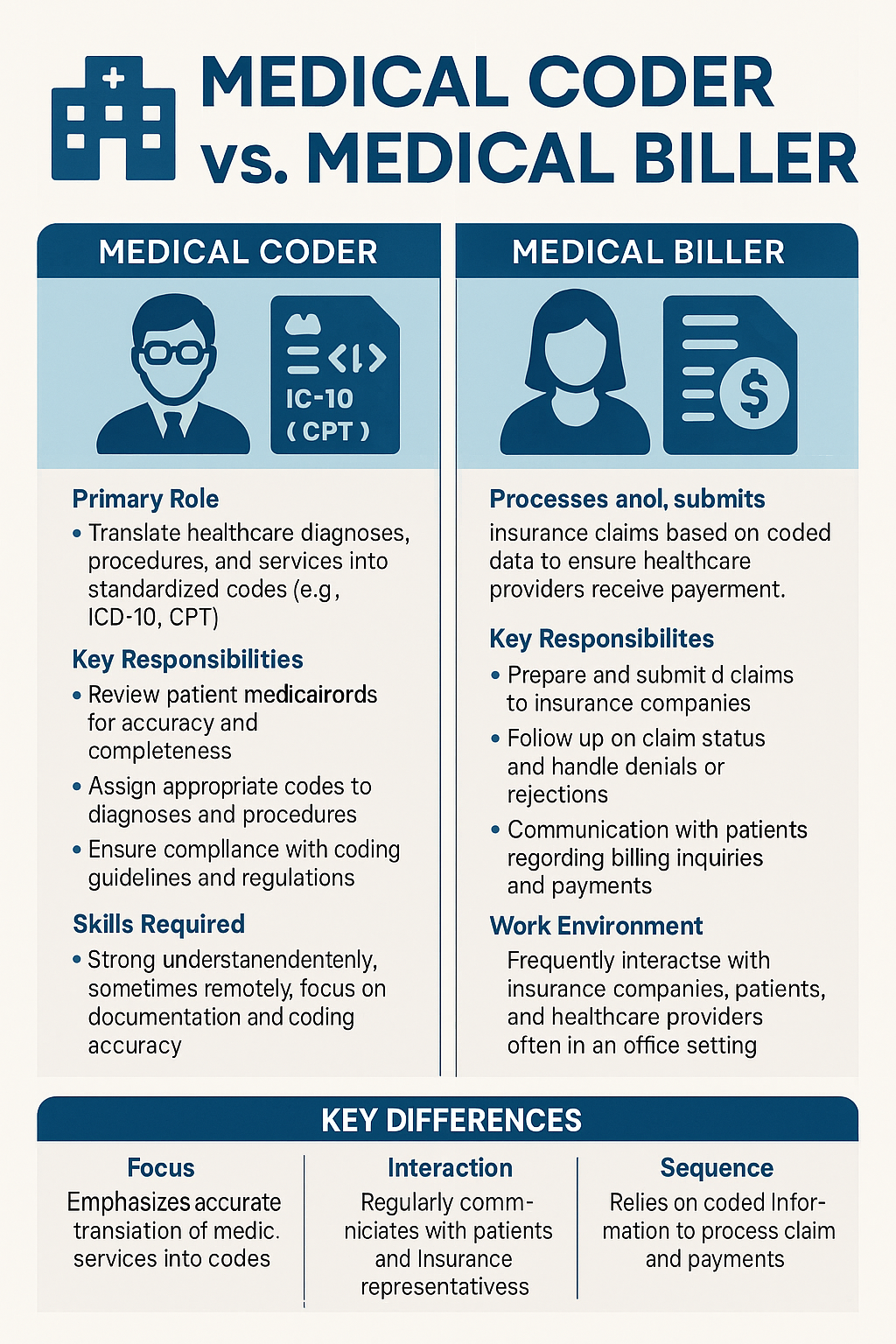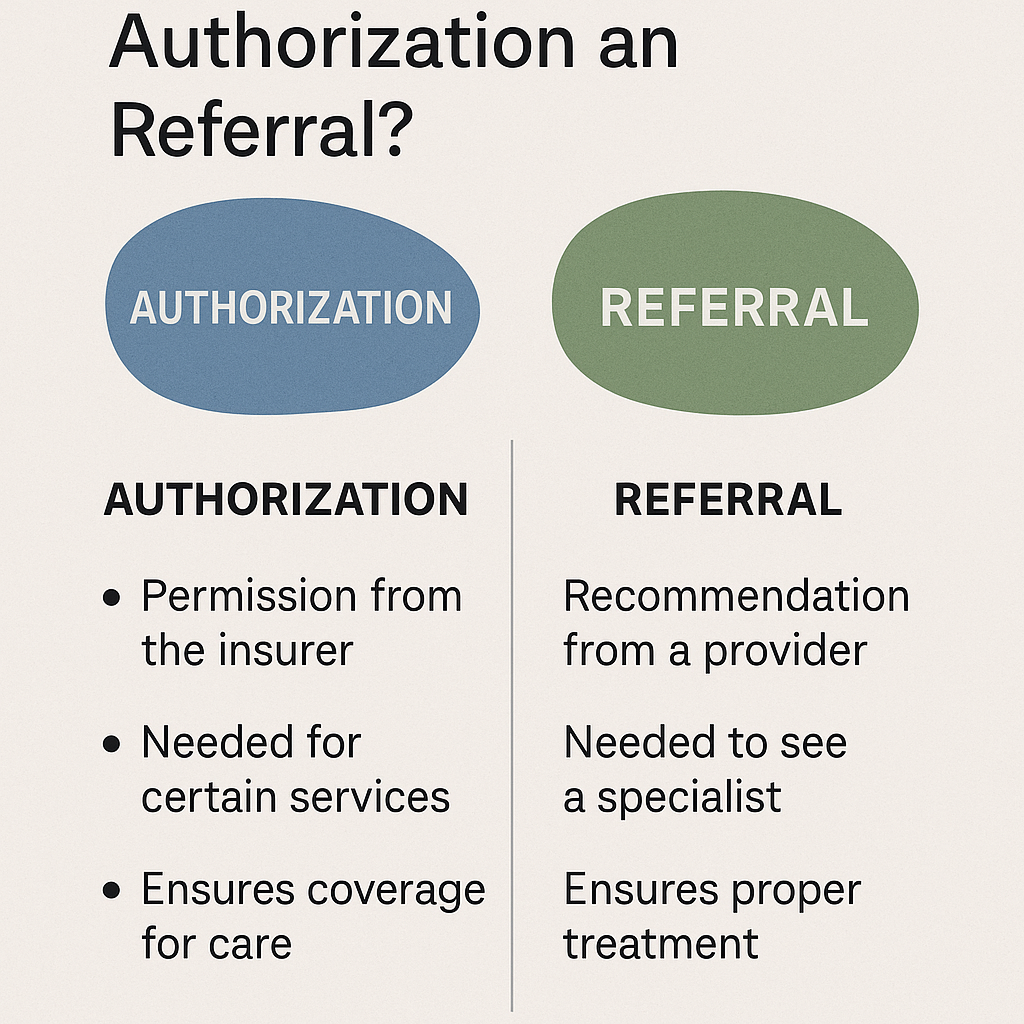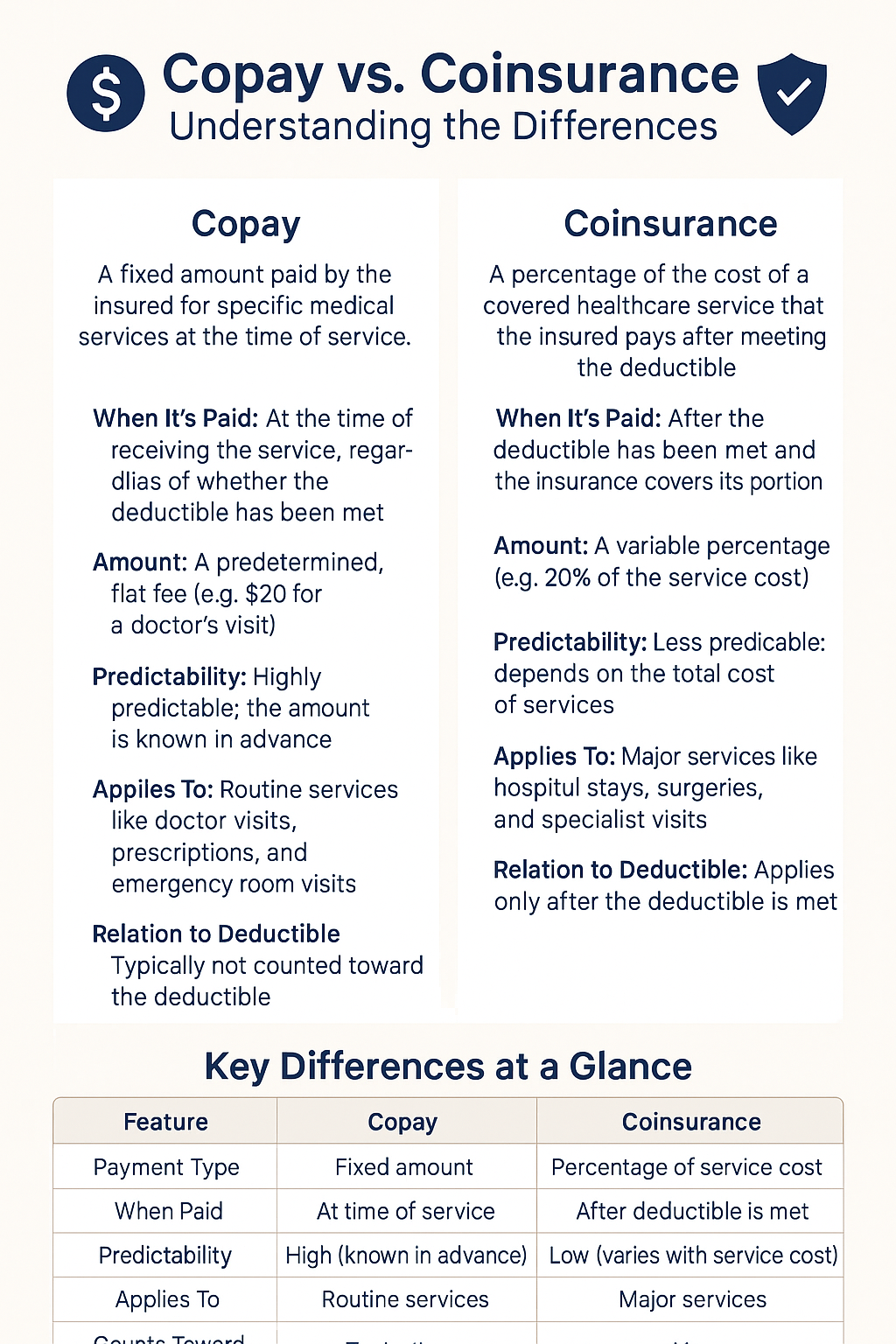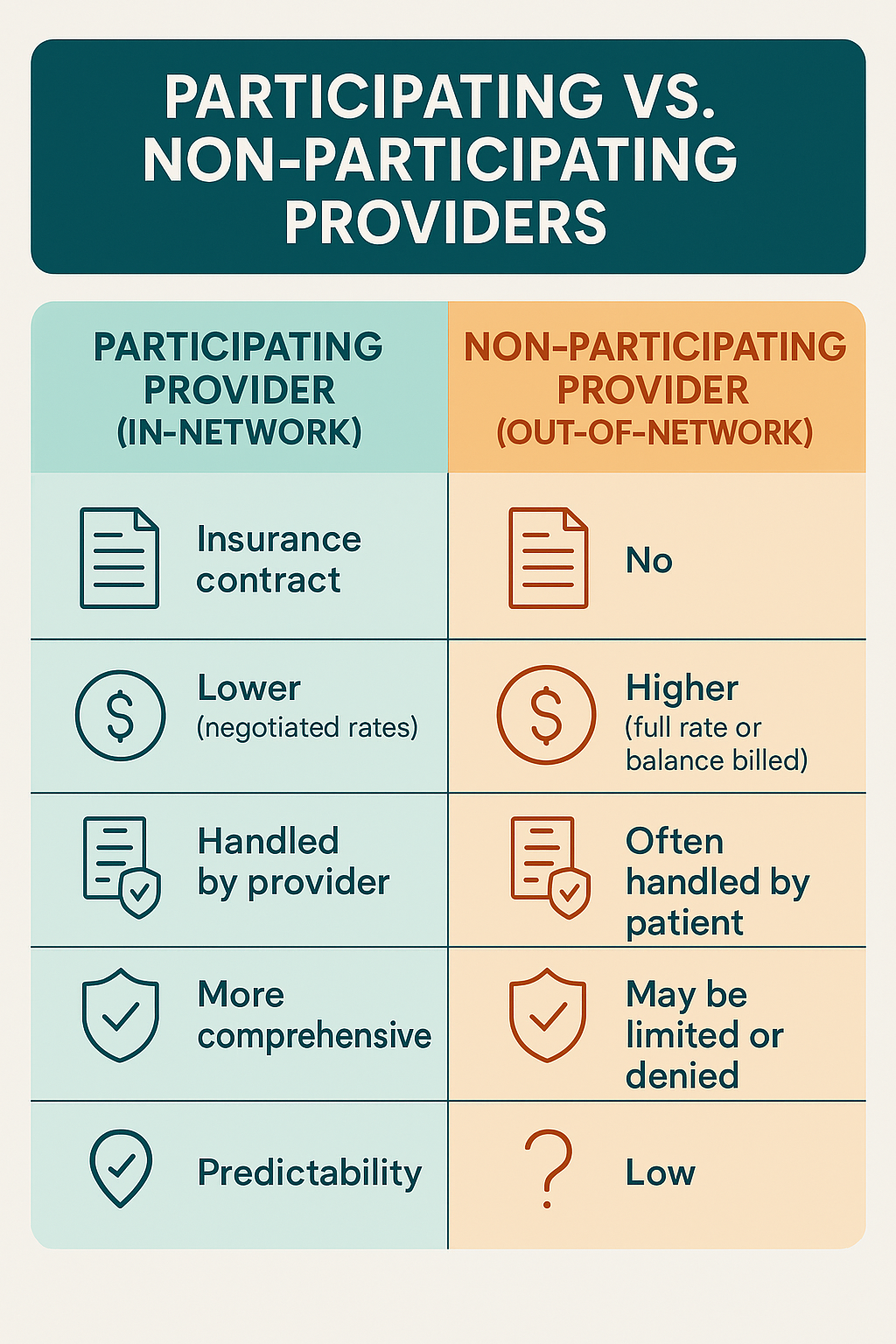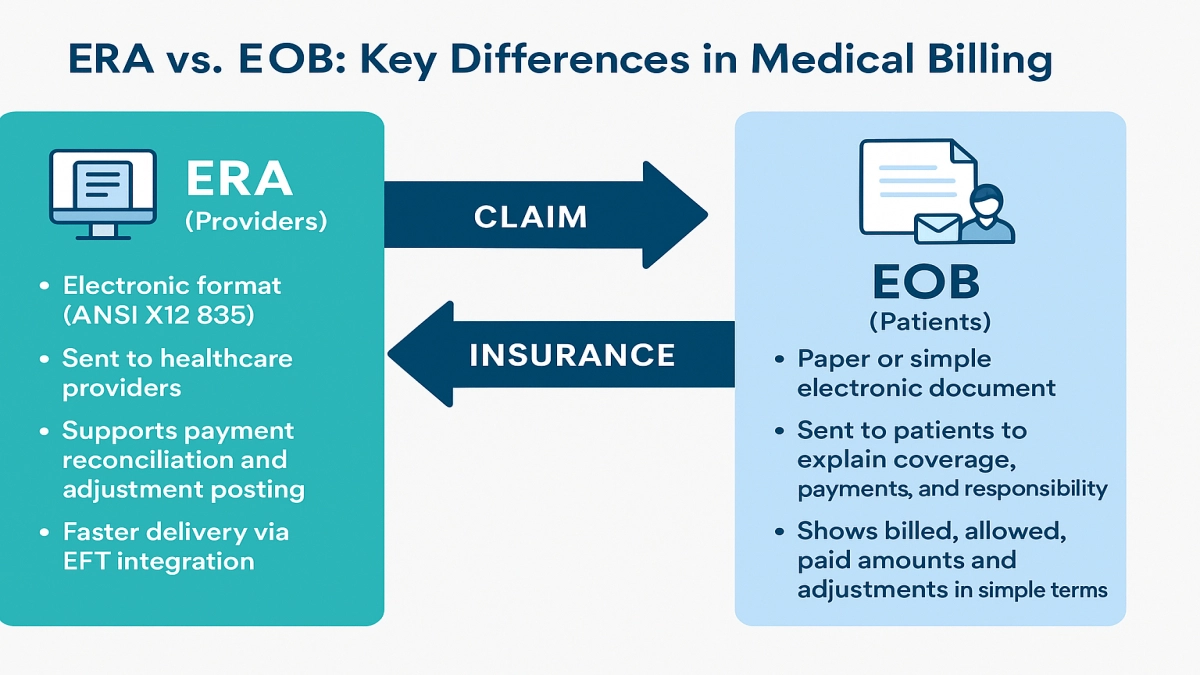Difference between a medical coder and a medical biller
While medical coders and billers both contribute to the healthcare revenue cycle, their roles serve different but complementary purposes. Medical coders translate doctors’ notes, test results, and procedures into standardized codes like ICD-10 and CPT. These codes are essential for insurance documentation and accurate patient records. In contrast, medical billers take those codes and prepare … Read more
